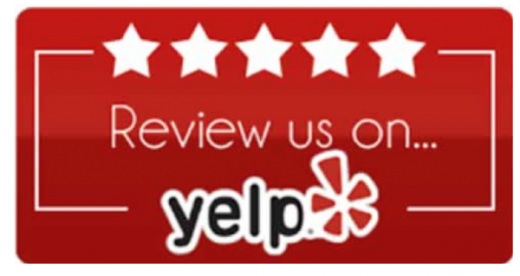Why People Trust Strangers When Buying Online
— August 15, 2019

PatternPictures / Pixabay
Think about the last time you bought something online. How did you decide what to buy? You probably searched for whatever you wanted and read a few reviews. Maybe you found a negative review and that was your cue to move on to the next option.
We hold the opinions of online reviewers so highly that we base our purchasing decisions almost entirely off of them. But who are these people that we let decide which brand of moisturizer we should buy next? They’re strangers. If one of them came up to you on the street and recommended you buy a certain product, you’d probably turn around and walk quickly in the other direction. So why do we trust them so much online?
And since we trust online reviews so much, a single negative review can destroy your brand. Since virtually everyone is reading (and believing) online reviews, they are essential to your business. But why do we trust them? And, more importantly, should we?
This article will cover:
- Why we trust online reviews
- The power of negative reviews
- How to manage your brand’s reviews
A few review statistics
Before we get started, here are a few statistics from Bright Local to convince you of the importance of online reviews:
- 86% of consumers read reviews for local businesses (including 95% of people aged 18-34)
- Consumers read an average of 10 online reviews before feeling able to trust a local business
- 40% of consumers only take into account reviews written within the past 2 weeks – up from 18% last year
- 57% of consumers will only use a business if it has 4 or more stars
- 80% of 18-34 year olds have written online reviews – compared to just 41% of consumers over 55
- 91% of 18-34 year old consumers trust online reviews as much as personal recommendations
- 89% of consumers read businesses’ responses to reviews
What makes people trust online reviews
Since most people do most of their shopping online nowadays, they turn to online reviews to determine if a product is worth buying. Since you can’t physically look at what you’re buying, reading a review is the next best thing. Similarly, reviews can validate restaurants and other businesses because they share what it would be like to experience the place. If the reviews are good, more people will want to visit for themselves, and if they’re bad, then of course more people will skip it entirely.
Online reviews eliminate our reliance on our friends and family to recommend where to go, which restaurant to try next, or what to buy. We can still ask them for their opinions, but we have access to so many more options thanks to online reviews. They’re especially helpful when planning vacations or when a new restaurant opens in town.
We trust online reviews because:
- They offer transparency into a business
- We see other reviewers as peers, so we trust their opinions as if they were our friends
- They help validate our choices
We trust negative reviews more than positive ones
Studies show that people pay more attention to negative reviews than positive ones. Negative reviews are so powerful that they can destroy your business. In fact, 60% of people will not use a business with negative reviews. Here are a few reasons why:
- Since there are more positive reviews than negative, people associate the scarcity of negative reviews with value (which leads us to trust them more)
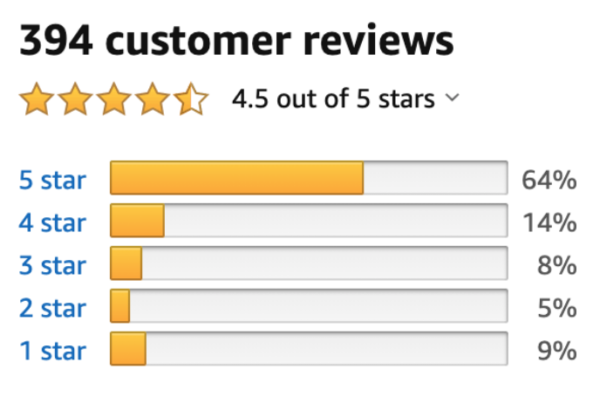
- Nobody wants to have a bad experience, so negative reviews are read as warning signs of what may go wrong so we use them to reduce our losses
- Negative reviews are seen as a way to assess the risk of potential negative outcomes
Not all reviews are created equally
Up until this point, we’ve more or less assumed that we can believe everything that we read in online reviews. In a perfect world, we would be able to trust all reviews for what they seem to be: honest opinions on a product or service. But that’s not always the case. The internet is riddled with fake reviews (both positive and negative), and even the “real” reviews can’t always be trusted.
Reviewers are anonymous
It’s easy to get so caught up reading reviews that you forget to stop and think about who the people writing reviews are. Reviews are often emotional and biased. For example, would you trust the opinion of a person who doesn’t like seafood but is reviewing a new sushi restaurant in town? Or what about a guy who went on a first date that went sour at that same restaurant? Probably not, because they have their own personal biases that will affect their reviews. But how would we know that if they don’t mention that information in their reviews?
Additionally, the average reviewers isn’t average at all. People who write online reviews are more likely to buy things in unusual sizes, make returns, be married, have more children, be younger and less wealthy, and have graduate degrees than the average consumer. Do they have similar interests, body types, skin types, activity levels, or palettes as you? If not, then their opinions on certain products may not be as valuable as they seem.
Reviews can be fake
About 20% of all online reviews are fake. Fake reviews can be either negative or positive and come from a variety of sources:
- Businesses can pay for fake positive reviews to make themselves look better
- Likewise, businesses can also pay for negative reviews to make their competition look worse
- Even people with no affiliation with the business can write fake negative reviews in an effort to get a refund or other types of perks from a brand
- Internet trolls write negative reviews for fun
Fake reviews are such a big problem that review sites like Yelp and TripAdvisor have taken several measures to counter fake reviews and trolls. They use automatic detection systems and manual moderation teams to filter out reviews that they believe are fake, biased, or otherwise unhelpful. Yelp calls this section “not recommended.”
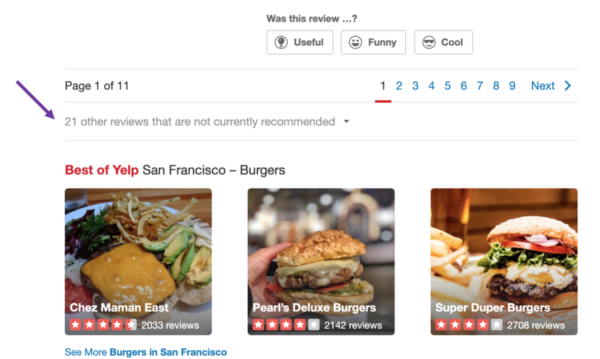
Some sites take additional precautions to provide quality reviews by only allowing verified users to leave reviews. This helps to weed out a lot of fake reviews.
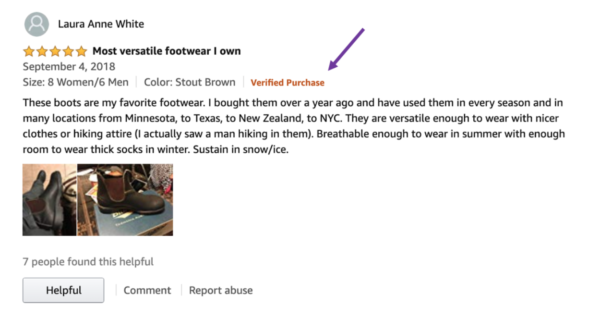
How to spot a fake review
Even though we instill a lot of trust in online reviews, it’s important to analyze them to try to determine if they’re the real deal or not. We’ve been getting better at spotting fake reviews. Here are a few signs that can show a review might be a fake:
- Really vague
- Lots of first-person pronouns
- More verbs than nouns
- Not from a verified buyer
- Timestamped at odd hours
There are also engines that claim to spot fake reviews. For example, Fakespot examines reviews found at a URL you enter and then returns a grade.
How to improve reviews ethically
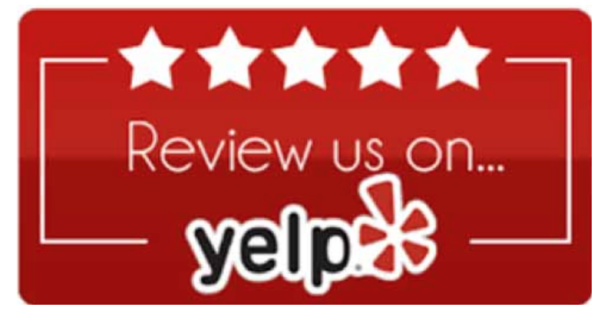
Even though reviews can’t always be trusted, they’re still vital for your business. Just improving your Yelp rating by one star can cause a 5-9% increase in revenue. Additionally, half of consumers need at least a four-star rating before they choose to use a business. Since we’re reading and trusting online reviews on a daily basis, businesses no longer have a choice of whether or not they will manage their reviews. They have to.
Luckily, there are ways to ethically manage your online reviews. Here are a few:
- Encourage positive reviews: A simple “Find us on Yelp” sticker on your window or a “Review us on Yelp” note on your receipt can go a long way to remind customers to leave a review online.
- Respond to negative reviews: Don’t be alarmed by negative reviews. They can offer valuable feedback and give you a chance to connect with your customers. Most people read business’s responses to negative reviews and adjust their opinions accordingly.
- Prioritize higher-price and higher-consideration products: While all reviews are valuable, people tend to require more reviews for big ticket items. It’s worth spending a little more effort to boost your reviews on items that cost more.
- Report/flag reviews that do not follow site guidelines or are considered spam.
Final thoughts
Real or fake, reviews are here to stay. Since your customers are reading and believing what they see about your business in reviews, it’s important to keep a watchful eye over what is being said about you online.
Digital & Social Articles on Business 2 Community
(26)

